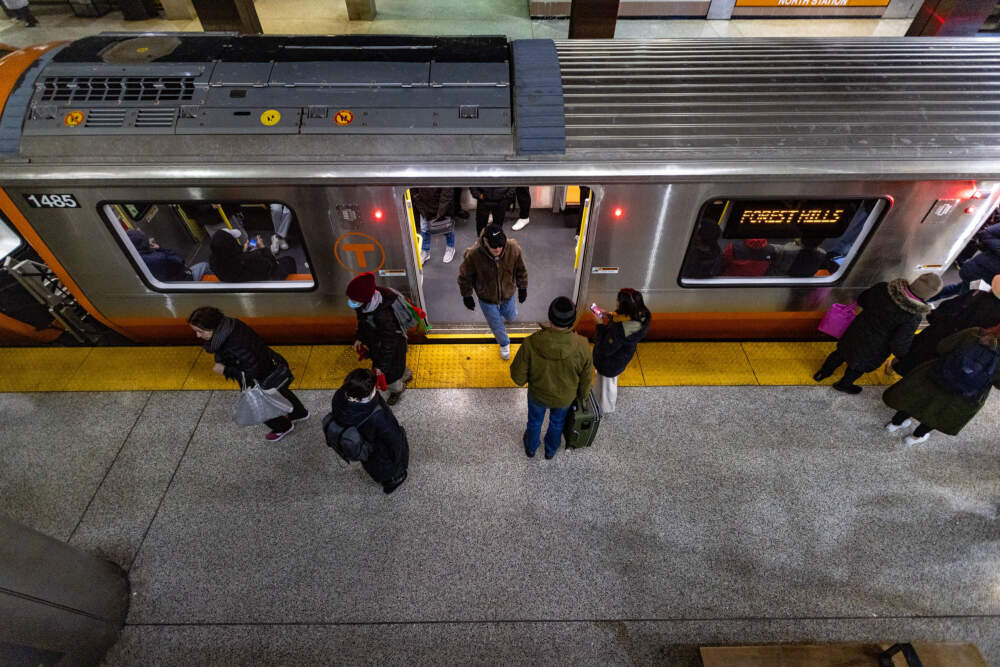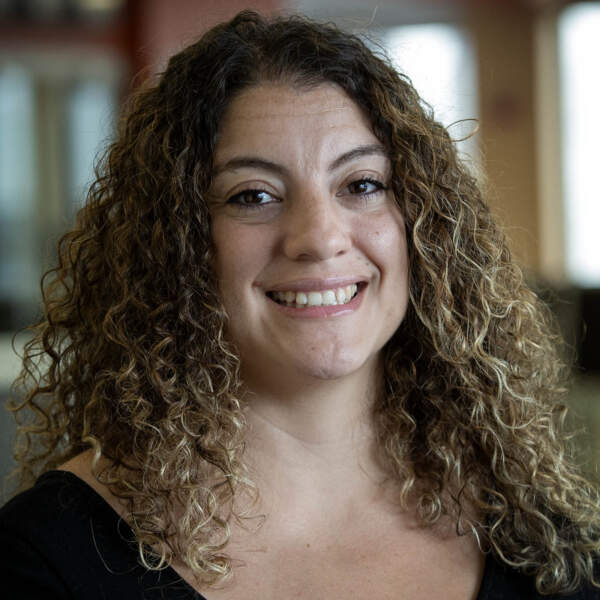Advertisement
A big job on a tight deadline: Transportation Funding Task Force appears to get scaled back
ResumeIt was a big, even overwhelming, assignment from the governor: Come up with new ways to fund the state’s sweeping transportation needs, from the MBTA and regional transit to roads and bridges.
But six months in, the 31-member task force is running out of time and its mission appears to have shifted: Instead of a detailed plan on how to finance the system and keep it healthy for the long haul, transportation officials seem to be bracing stakeholders to expect just a "list" from the task force.
This apparent downgrade has become public in a roundabout way, and has taken some task force members by surprise. At a late July update for the MBTA board, the state’s undersecretary of transportation, Hayes Morrison, said the task force was now working to create a “toolkit” — essentially a list, which would include “sources and uses,” Morrison said, or a roster of potential revenue sources and places where the money is needed.
The T board’s chair, Thomas Glynn, asked Morrison if the task force would still be advising on spending priorities. Morrison's response: “We don't think so … it’s possible, but we haven’t discussed that yet.”
When they heard about the undersecretary’s update, many on the task force — a who's-who of leading figures in transit policy, state government, housing, health and business — were frustrated.
Among them is MBTA Advisory Board Executive Director Brian Kane. He said when he was tapped to join the task force, he was told the group would identify specific projects and programs to raise funds for transportation needs. And they are working to do just that, he said. He doubts a “list” meets the mandate.
“I think it's on us to meet the charge that [Healey] has given us through the executive order to make solid recommendations and, and provide solid facts and data,” Kane said. “A toolkit, which I still don't really understand what that means, I don't think does that.”
People closely following the task force's progress, like Reggie Ramos, executive director of the advocacy group Transportation for Massachusetts, are now also concerned. In an interview, she said there had been “a lot of hope” that Healey’s creation of the task force by executive order meant there would be real recommendations at the end of the nearly year-long assignment. But now, she worries concrete advice from the task force has been sidelined.
“The fear is this becomes a benign, aimless list that just exists and does not do anything,” Ramos said.
In a statement, MassDOT did not address the specific concerns of task force members. A spokesperson said the mission of the task force has not changed: "Together, the members are exploring what’s needed to create a safe, reliable, equitable and efficient transportation system for all residents and employers currently and for generations to come."
The state has massive funding needs for transportation. Road maintenance and projects like replacing the Cape Cod bridges will cost hundreds of millions of dollars. The T is facing a $700 million budget gap next year. And longer term, the transit system needs an estimated $25 billion in investments to reach a state of good repair.
Advertisement

There is a lack of clarity around who's responsible for the project's final conclusions and report. In March, a month after the task force was formed, the state hired consulting giant Ernst & Young for hundreds of thousands of dollars, to assist on the project. This came as a surprise to some on the task force.
Several members of the group told WBUR they are not clear how the task force’s work and the work of the consulting firm will merge. Amie Shei, a task force member and chief executive of The Health Foundation of Central Massachusetts, said the consultants have been working “independently” of the task force.
“I assume they've been working closely with the co-chairs and the staff, but as a task force, we have not seen or heard any formal presentations from the consultants in recent months,” Shei said.
In an email response to WBUR's questions, a MassDOT spokesperson said the consultants were brought in to “facilitate the work” of the task force.
Shei said she believes the consultants have been studying how other states and countries fund their transportation needs and will share that information with the task force. “I'm really looking forward to reviewing that work,” she said.
A MassDOT spokesperson said the task force will "discuss, shape and develop the final deliverable." But the members, like Kane, have said it isn't clear what role the consultants will have in the report sent to the governor.
Kane said he would not stand by analysis that's prepared by Ernst & Young for the task force to simply rubber stamp. Massachusetts doesn’t need another consultant-driven report identifying problems and possible solutions of the transportation system, he said; “that work has been done many, many times over over the last 20 years."
“And if the Ernst & Young report, if it's more milquetoast, then I certainly would not be comfortable putting my name and reputation behind that. Because I feel like the governor wants answers and we owe it to her to give her our answers.”
State Transportation Secretary Monica Tibbits-Nutt, who co-chairs the task force, in a statement said members are “working hard to deliver a report that includes tools and measures that will help the state fund the next generation of transportation.”
Tibbits-Nutt says the group has been holding additional meetings to examine transportation funding options. The task force meets twice a month, once as a full group and then in smaller "focus groups."
In an early setback for the group, the governor balked at an idea Tibbits-Nutt floated in public, to install highway tolls near the Massachusetts border. The public rebuke was a stark reminder of the stiff challenge the task force has in proposing ideas that will gain traction.
Shei, of the task force, said, “We actually haven't considered any concrete [funding] options. And, you know, we also haven't been told that certain options are off the table."
It’s hard for the public to know the substance of these discussions, because according to MassDOT, no official meeting minutes are being kept.
Shei said the job of addressing the state's critical transportation needs "is an immense one that cannot be solved by one task force in one year.” She said she's optimistic the group will deliver a product of significance by year end. But it's unclear what that will look like.
